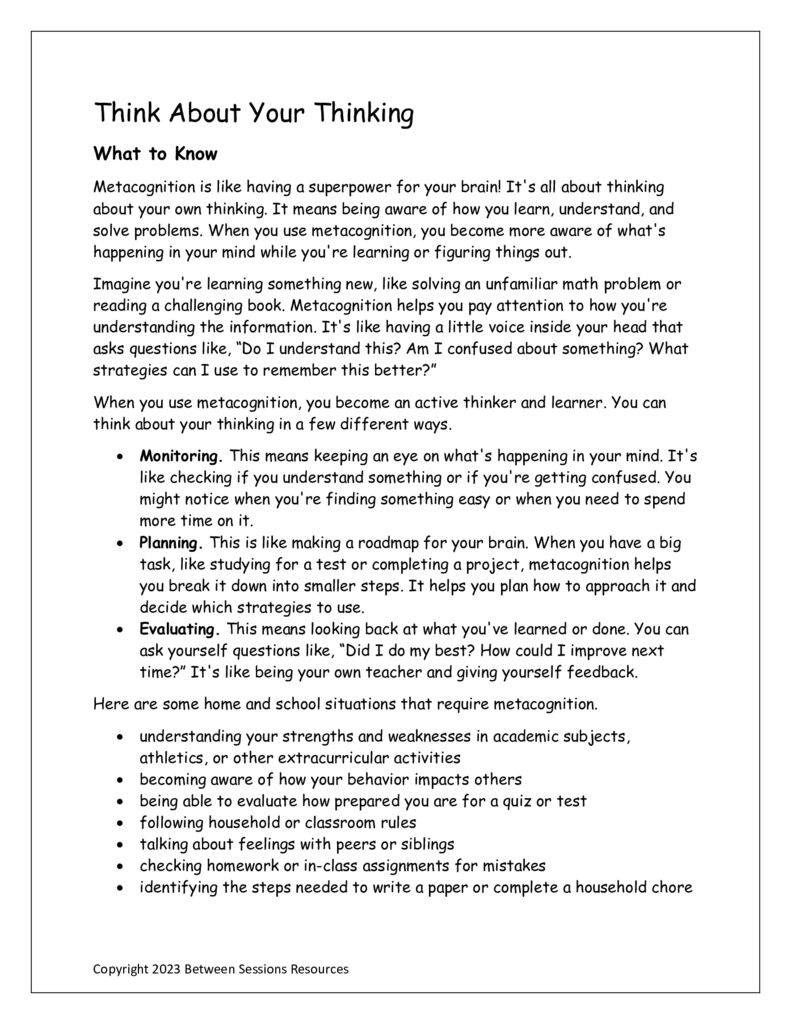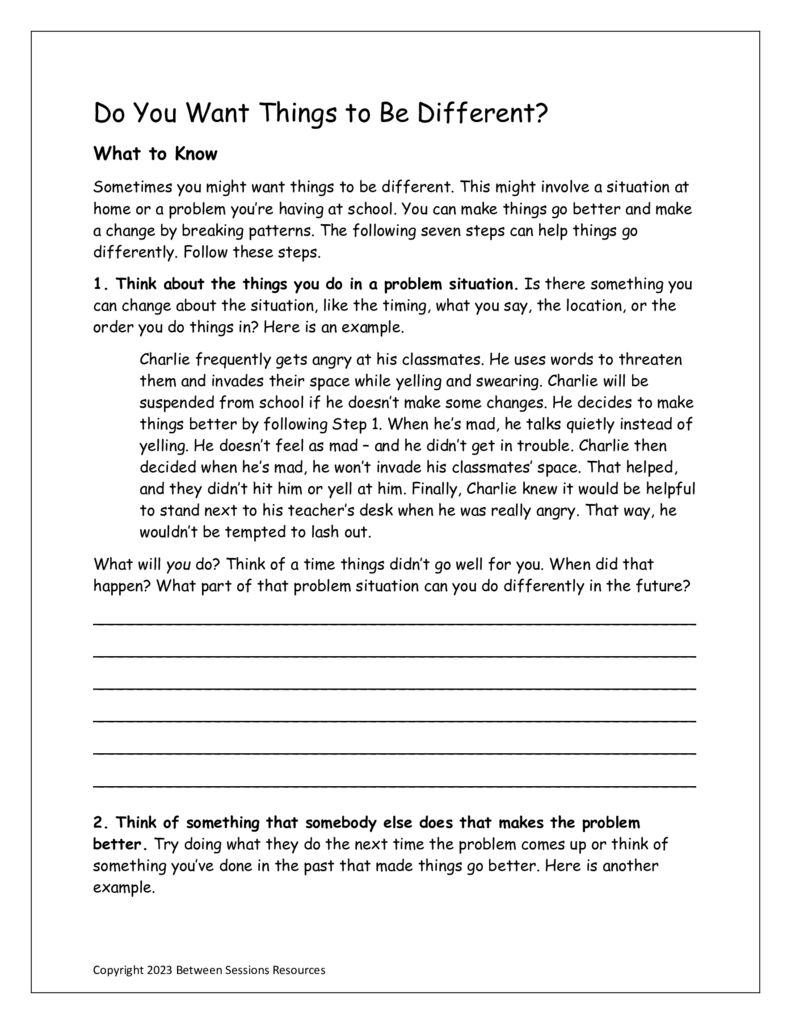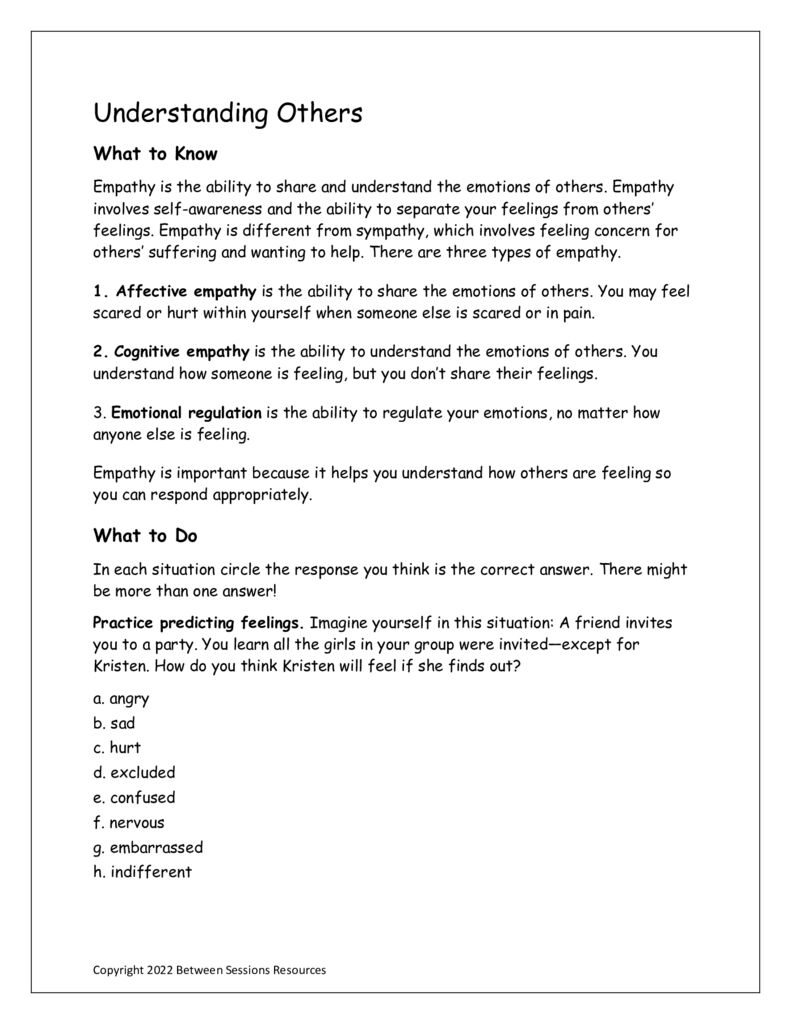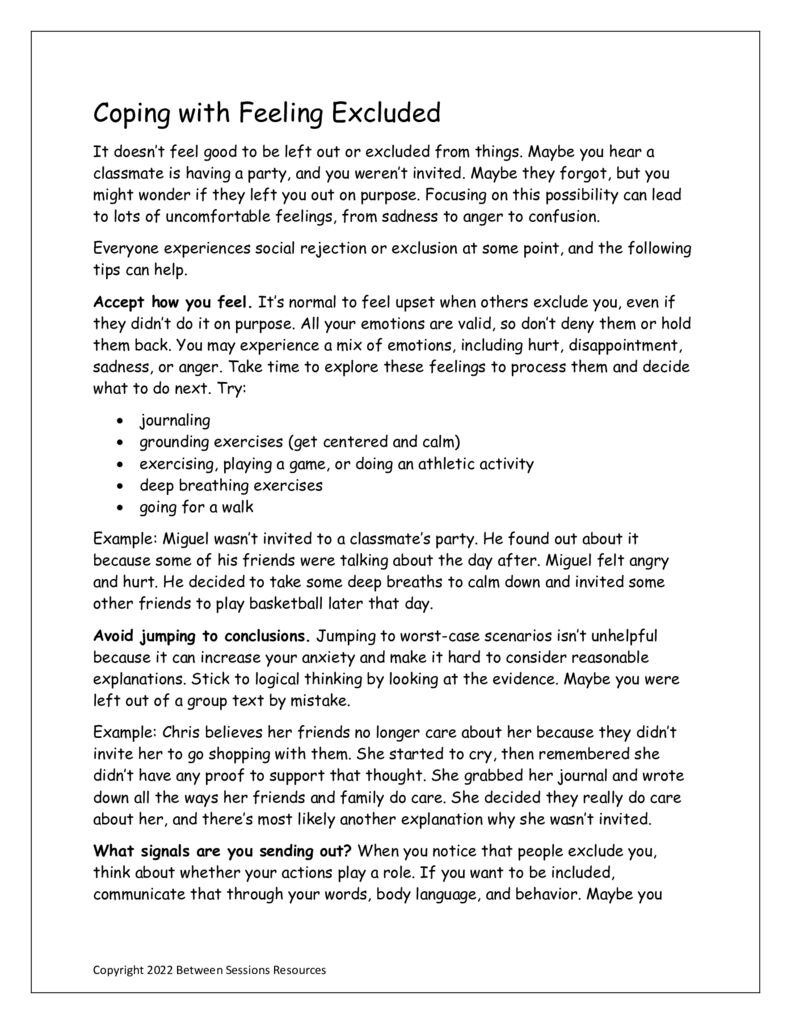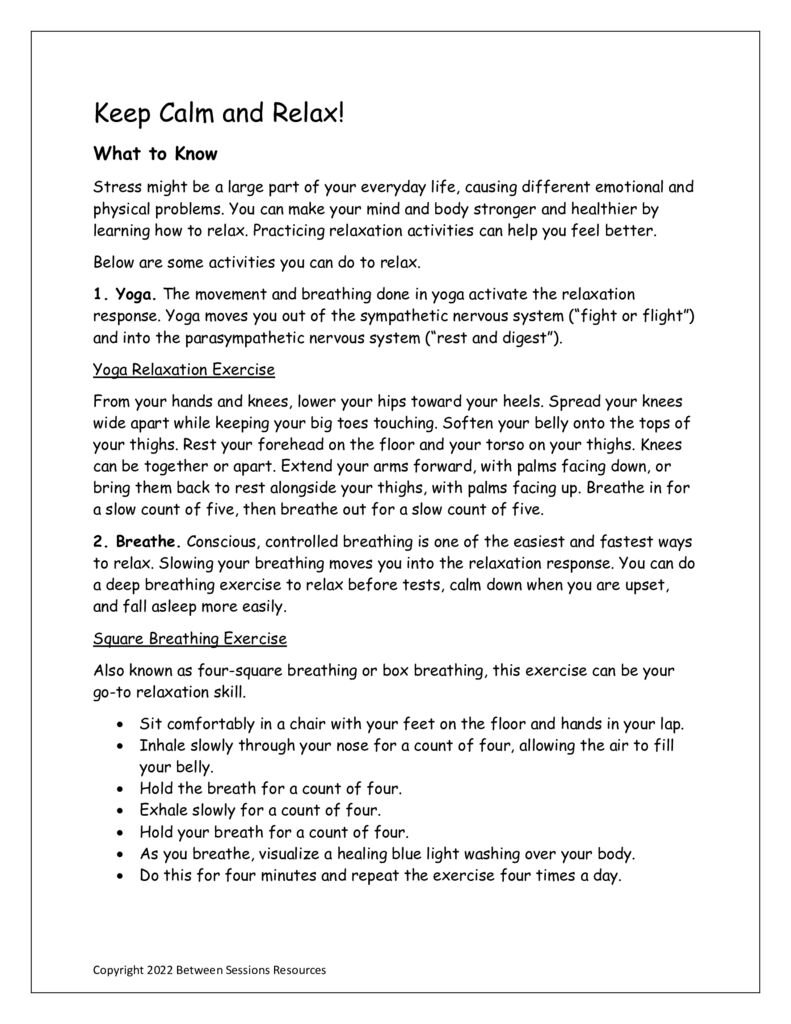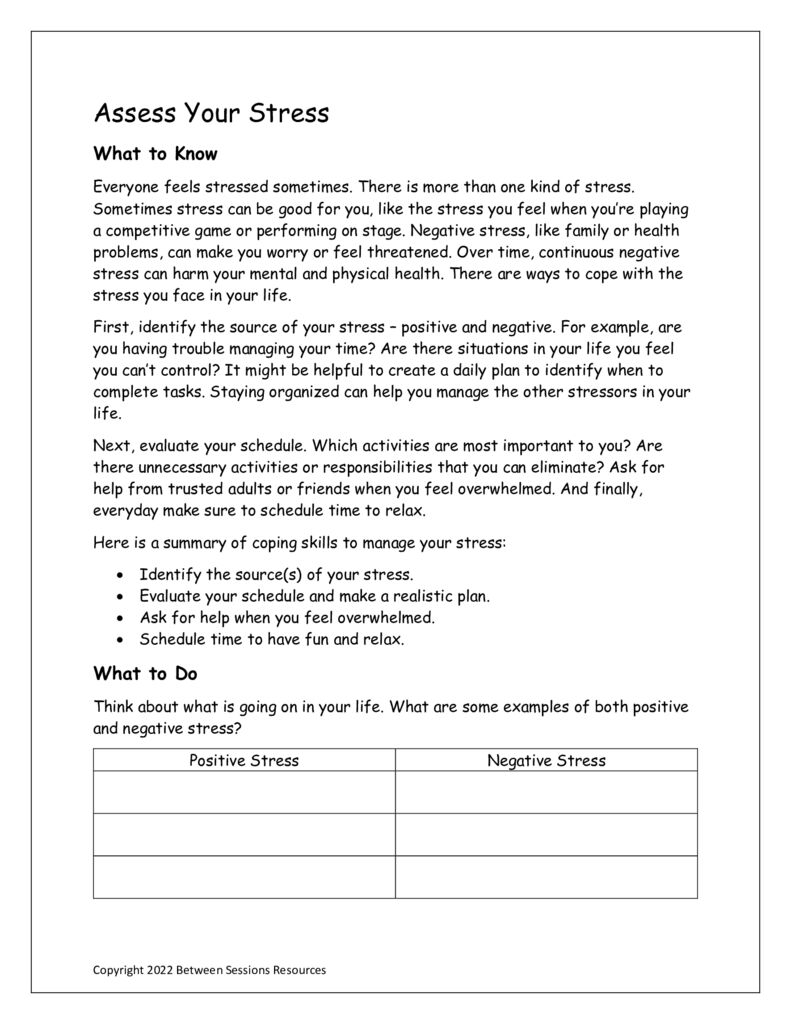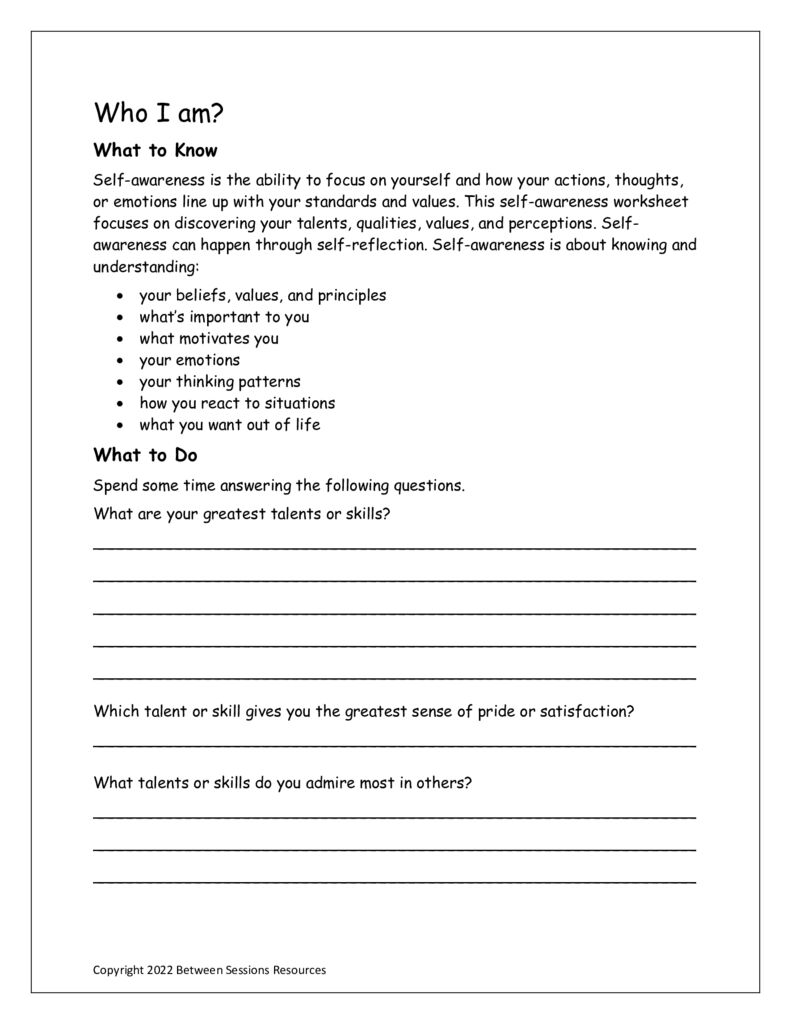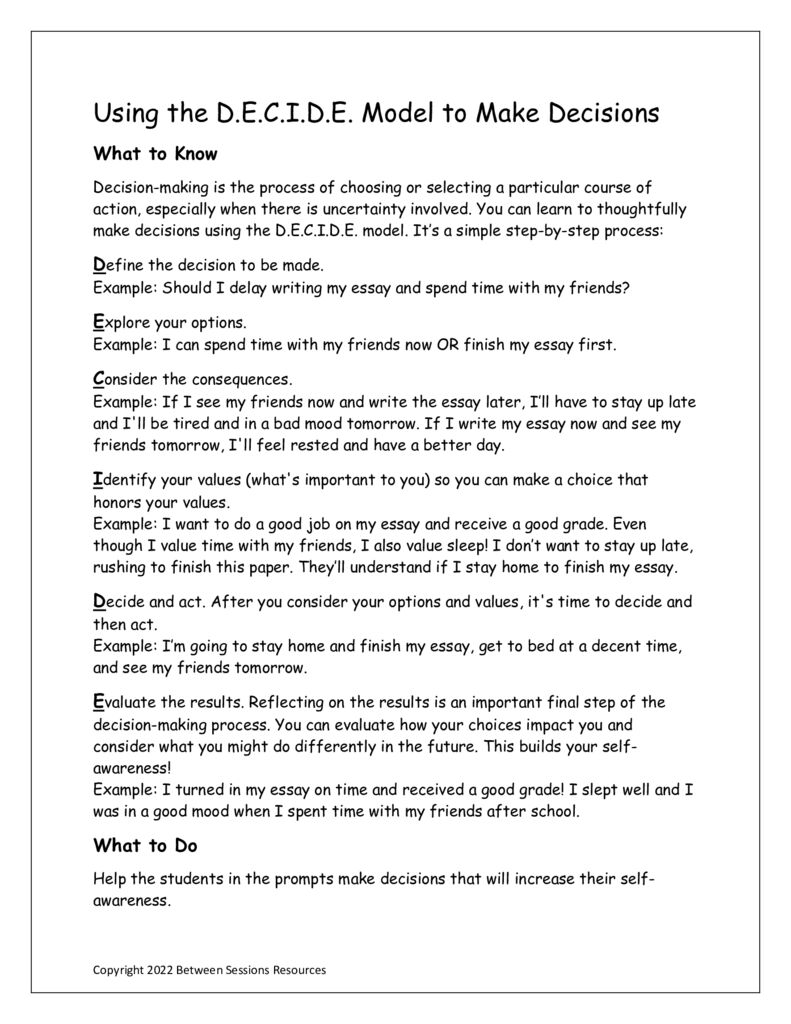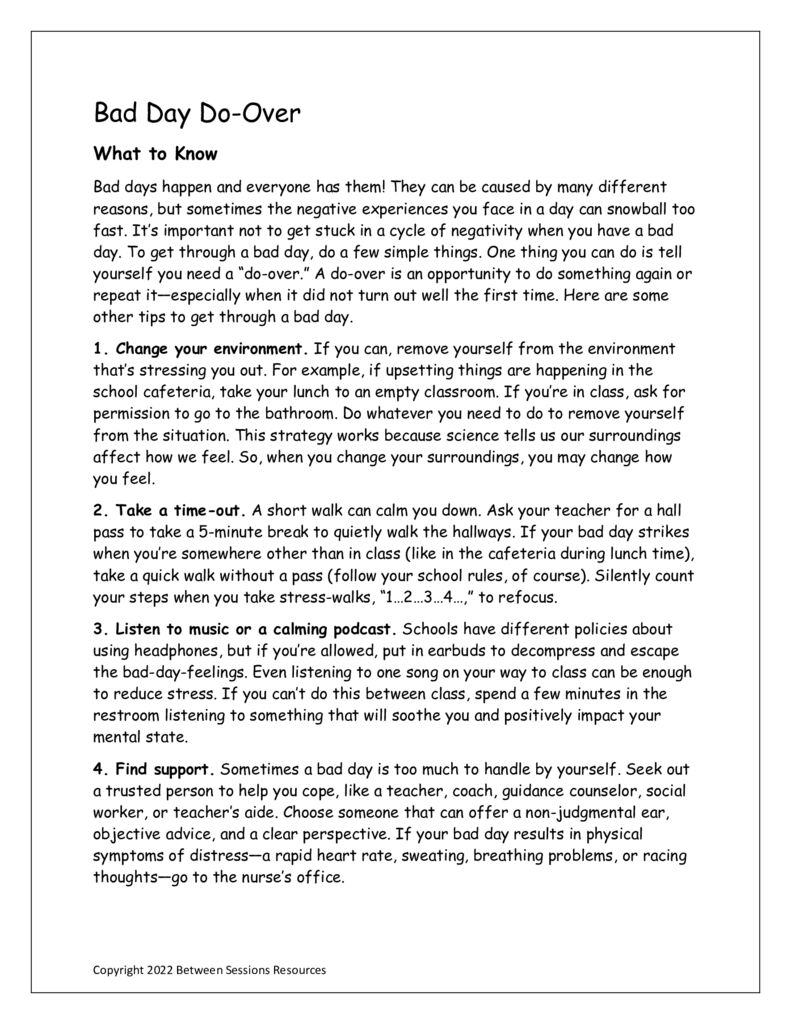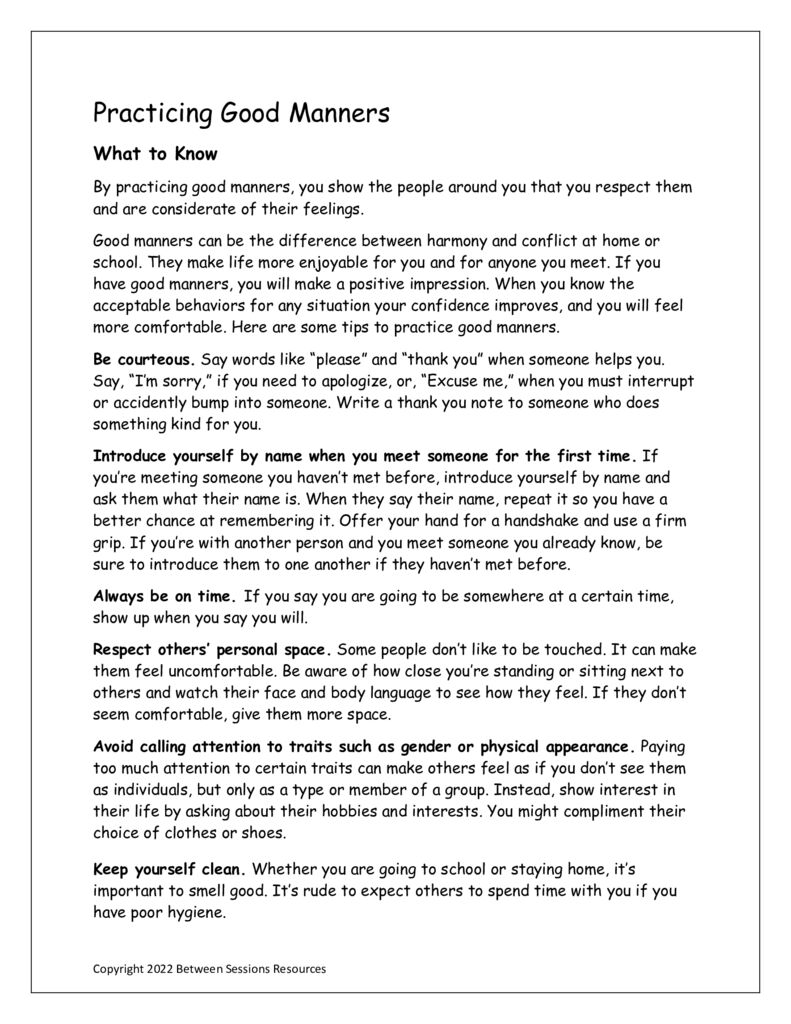This worksheet is designed to help teens understand the concept of “metacognition” or thinking about their thinking. It’s designed to help teens develop a variety of executive functioning activities including problem-solving, goal-setting, and time management. (0623, executive functioning, memory, problem-solving)
This worksheet teaches teens seven strategies to look at their problems differently, including: looking at how others have handled a similar problem, acknowledging feelings, but understanding that they don’t determine actions; communicating with others more effectively. (0323, decision-making, solution-focused therapy, problem-solving, impulse control)
This worksheet teaches teens the different types of empathy and helps them understand how to increase their empathy by reading body language, being compassionate, and listening carefully to others. (1222, empathy, behavior problems, social problems, Asperger Syndrome, ASD)
This worksheet is designed to help teens deal with being excluded. It instructs them to accept their feelings, avoid jumping to conclusions, communicate their needs, pay attention to their strengths, and more. Questions help teens explore the times they have felt excluded and think about what they could have done differently. (1222, social skills, loneliness, peer pressure)
This worksheet helps teens learn relaxation techniques like yoga, deep breathing, meditation, visualization, and more. A chart is included to help teens keep track of how practicing relaxation techniques affects their moods. (1222, relaxation, emotional regulation, stress)
This worksheet is designed to help educate teens about positive and negative stress. It explains that negative stress can lead to physical as well as psychological symptoms. It also suggests activities to help teens reduce stress. (1122, stress, anxiety, depression)
This worksheet asks teens to think about their identity, including their strengths and weaknesses, and their best qualities, skills, or talents they want to develop. It also asks teens to consider how other people see them, but in their public life and private life. (1122, identity, self=awareness, self-esteem, self-efficacy)
This worksheet teaches teens the D.E.C.I.D.E model: definite decisions explore options, consider consequences, identify values, decide and act according to your values, and evaluate the adults. The worksheet includes examples of teens making decisions for the teen to consider. (1122, problem-solving, executive functioning, decision-making)
This worksheet gives teens the tools to deal with difficult emotions that can translate into a “bad day.” Learning emotional regulation can of course translate into a lifetime of handling difficulties and stress. (1122, emotional regulation, stress)
This worksheet is designed to help children understand the importance of having good manners in the home. It lists some important manners to show others that you consider their feelings. Questions ask kids and teens to consider how they would react in appropriate ways. (0422, ASD, ADHD, manners, behavior)

